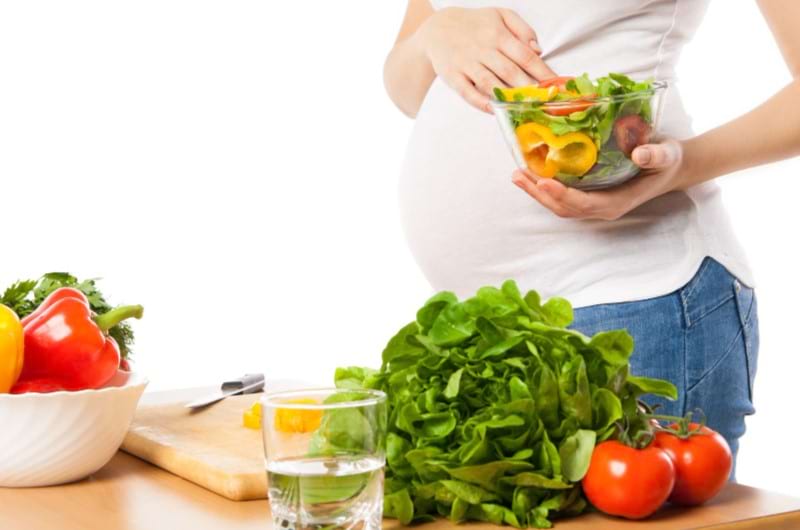Prenatal vitamins provide your body with various nutrients to ensure your baby’s growth and development and maintain overall health. Eating a balanced diet and taking prenatal vitamins ensure you get the recommended daily doses of essential nutrients for pregnancy. When looking for the best, ensure they contain enough folate, iron, calcium, omega-3 fatty acids, protein, vitamins D, C, B12, iodine, and choline.
As a mom, you only want what’s best for your baby. There are lots of ups and downs during pregnancy, but putting your baby’s health while they’re growing inside your belly must be your priority.
So, how should you do this?
Well, first, you should understand that during pregnancy, your body increases its need for vitamins and minerals to support both you and your baby.
Second, even when you think you’re already eating enough variety of foods with lots of fruits and veggies, you won’t still get all the nutrients you and your baby need.
Lastly, taking prenatal vitamins is essential to fill the lacking nutrients you didn’t get from your diet.
6 ways to choose the right prenatal vitamins
Choosing the right prenatal vitamins is essential to support your baby’s development and achieve a healthy pregnancy.
Below are some tips to follow when choosing prenatal vitamins:
1. Consult your doctor
Discuss with your doctor about taking prenatal vitamins.
They will assess your health history, dietary restrictions or preferences, and individual needs and recommend what is right for you.
2. Consider your budget
Choose a prenatal vitamin that is within your budget, matches your lifestyle, and is accessible whenever you run out of stock at home.
3. Your diet and lifestyle
Say you’re following a specific diet, like vegan or gluten-free; some prenatal vitamins are formulated to meet your needs.
Choose the vitamins that match your diet and lifestyle.
4. Check ingredients
Carefully check the ingredients and choose prenatal vitamins containing essential nutrients like folic acid/folate, iron, calcium, vitamin D, C, B12, and DHA.
Ask your doctor for the recommended daily dose of these nutrients and ensure your chosen brand meets your needs.
5. Compare brands
Research different brands and compare their ingredients and user feedback.
Some prenatal vitamins may cause side effects. Discuss this with your doctor.
Choose a reputable brand that has positive reviews and has been tested for its quality, safety, and efficacy.
6. Start early
Ask your doctor when’s the best time to start taking prenatal vitamins.
Typically, it would be best to take them a few or one month before getting pregnant to receive the optimal benefits of the nutrients, ensuring a healthy pregnancy.
10 essential nutrients to look for in prenatal vitamins
1. Folic Acid (vitamin B9)
Vitamin B9 is an essential B vitamin that supports your baby’s brain and spinal development and prevents congenital disabilities from occurring.
You must take at least 400-800 mcg of folic acid. You can get it from prenatal vitamins or fortified foods, like cereals, breads, and pasta.
Other good sources of folic acid include leafy green vegetables, citrus fruits, and lentils or beans.

Wondering the difference between folate and folic acid?
Folic acid and folate are both vitamin B9 and give the same benefits to your pregnancy.
Their main difference is folate is naturally found in vegetables, fruits, and beans, while folic acid is its synthetic form which is added to fortified foods or food supplements.
2. Iron
Iron helps your body produce red blood cells and supports the development of the placenta, which supplies oxygen and delivers nutrients to your baby.
It also prevents you from developing anemia.
Foods that are good sources of iron include lean meats, eggs, poultry, fatty fish, beans, fortified cereals, and dark green leafy vegetables.
When your diet doesn’t meet the 27 mg recommended daily dose of iron. You must take it from prenatal vitamins.
3. Calcium
Calcium is essential for your baby’s bone development and maintaining your bone health.
Good sources of calcium include dairy products, leafy green vegetables, calcium-fortified plant-based milk (i.e., almond, soy, and oat milk), tofu, legumes, beans, almonds, and fortified cereals.
You must have at least 1,000-1,300 mg of calcium per day.
4. Omega-3 fatty acids
Omega-3 fatty acids, particularly DHA (docosahexaenoic acid), are essential for your baby’s brain and eye development.
These fatty acids support and maintain your brain health and help prevent preterm labor.
Fatty acids are commonly found in fatty fish such as wild salmon, mackerel, trout, and sardines.
If you prefer a vegan source, look for algae-based supplements that are enriched with DHA nutrients. You must take at least 200-300 mg of DHA per day.
5. Protein
Protein helps grow and repair damaged tissues for both you and your baby.
It supports the development of your baby’s organs, muscles, and immune system.

Protein-rich foods include lean meats, eggs, dairy products, poultry, fish, legumes, beans, nuts and seeds, whole grains, and protein powders.
The recommended daily dose of protein for pregnant women is around 75-100 mg.
6. Vitamin D
Vitamin D helps the body absorb calcium, supports your baby’s bone development, and regulates their immune system functions.
The most common natural source of vitamin D is exposure to sunlight.
You can also get it from fatty fish (like salmon, mackerel, sardines, and trout), cod liver oil, fortified milk, vitamin D-enriched foods, eggs, and mushrooms.
You must take at least 15 mcg of vitamin D daily.
7. Vitamin C
Vitamin C helps the body absorb oxygen and produce collagen, which is vital in forming and repairing your baby’s tissues.
Most importantly, vitamin C is a powerful antioxidant that boosts your baby’s and your immune systems to fight free radicals and protect the body from infections and diseases.
Some foods that are excellent sources of vitamin C include citrus fruits, berries, kiwi, tomatoes, bell peppers, and leafy green vegetables.
8. Vitamin B12
Vitamin B12 is crucial for forming red blood cells and developing the baby’s nervous system.
Common rich sources of vitamin B12 are animal products such as meat, fish, poultry, eggs, and dairy.
Vegan moms should ensure they get enough vitamin B12 from fortified foods or supplements.
Pregnant moms must have at least 2.6 mcg of vitamin B12 per day.
9. Iodine
Iodine is essential for producing thyroid hormones necessary for the baby’s brain development.
Good sources of iodine include iodized salt, seafood, dairy products, and some fortified foods.
The recommended daily dose of iodine for pregnant women is 220 mg daily.

10. Choline
Choline is an essential nutrient for your baby’s brain formation, development, and function.
It also supports other bodily processes like metabolism and detoxifying the liver.
Good food sources of choline include lean meat, eggs, seafood, dairy products, legumes, beans, nuts, and seeds, and vegetables like broccoli, brussels sprouts, and cauliflower.
You must have at least 450 mcg of choline per day.
Are there side effects to taking prenatal vitamins?
Like any other medications or food supplements, prenatal vitamins may cause side effects.
That’s why it’s essential to consult your doctor before taking any prenatal vitamins to help you decide which types or brands suit you.
Below are some common side effects of most prenatal vitamins and ways to manage them:
1. Nausea and vomiting
Some prenatal vitamins may trigger nausea and vomiting. You’ll most likely experience these during the first trimester of your pregnancy.
To manage nausea and vomiting, try taking your prenatal vitamins with food. It can help reduce upset stomach and improve absorption.

For some, nausea worsens during the day, so taking it before bedtime may also be effective.
You can also try ginger tea to calm your nauseous feeling. If symptoms persist, ask your doctor for medications or other ways to manage nausea and vomiting.
2. Constipation
Iron and calcium in prenatal vitamins can make passing stools difficult.
Increase your fluid intake and consume fiber-rich foods to keep your stools soft and relieve constipation. Engaging in regular exercises may also help.
Talk to your doctor about taking a stool softener or laxatives if constipation persists.
3. Diarrhea
If constipation isn’t the case, you may experience diarrhea when taking prenatal vitamins.
While eating fiber-rich foods is essential in keeping your stools soft, too much can cause diarrhea.
Try taking your prenatal vitamin with food or a snack to see if your bowel movements return to normal.
Drink plenty of fluids to help keep your stools soft and prevent dehydration.
Consult your doctor immediately when diarrhea becomes severe. They may recommend new prenatal vitamins or other ways to manage the side effect.
4. Gas or bloating
Some nutrients, like iron, in most prenatal vitamins can cause gas and bloating.
Try taking the vitamin with food or a snack. Drink plenty of water to keep your bowels moving and prevent constipation or bloating.
Gradually increase your fiber intake and avoid or limit your intake of gas-producing foods like beans, dairy products, whole grains, starchy foods, some cruciferous vegetables, chewing gum, carbonated drinks, processed foods, and sugary and fried foods.
5. Allergic reactions
In very rare cases, some ingredients in prenatal vitamins may trigger allergic reactions.
Common signs or symptoms of an allergic reaction include rash, itching, swelling, or difficulty breathing.
Stop taking the vitamins and seek your doctor’s help immediately.
How do I choose the right prenatal vitamin?
When choosing the right prenatal vitamins, you must keep a few things in mind. Some prenatal vitamins may be harmful to you and your baby’s health.

Below are things you must avoid in a prenatal vitamin:
1. Too much iron and vitamin A
There’s a saying by Edna Ferber that goes, “Too much of anything is as bad as too little.”
When you lack the essential vitamins needed for pregnancy, you and your baby will experience problems.
But, too much of these nutrients may be just as harmful too.
Too much iron can lead to toxicity which may cause complications like liver, kidney, and heart diseases.
High doses of vitamin A can also cause congenital disabilities in your baby and increases the risk of a miscarriage.
Your liver may also experience some problems.
Sticking to your daily recommended dosage for each essential nutrient would be best.
Sometimes, your doctor may recommend you take higher doses of a specific vitamin under some circumstances.
2. Artificial colors, flavors, and sweeteners
Some prenatal vitamins contain artificial colors, flavors, and sweeteners that don’t provide any health benefits and may cause adverse side effects.
Watch out for the ingredients in choosing your prenatal vitamins and opt for brands that are free from them.
If you have flavor issues, look for brands that contain natural flavorings or talk to a healthcare provider about it.
3. Herbs or supplements
Some prenatal vitamins are formulated with certain herbs and supplements that may interact with some nutrients and put your pregnancy at risk.
Avoid prenatal vitamins that may contain herbs or supplements that are not recommended for pregnancy.
4. Allergens
Common allergens found in some prenatal vitamins include gluten, dairy, soy, or other ingredients.
You must avoid taking such prenatal vitamins if you are allergic to one of the ingredients.
Consider taking vegan or gluten-free prenatal vitamins, as most of these are free from allergens.
References
- https://www.mayoclinic.org/healthy-lifestyle/pregnancy-week-by-week/in-depth/prenatal-vitamins/art-20046945#:~:text=Beyond%20checking%20for%20folic%20acid,B%20vitamins%2C%20zinc%20and%20iodine.
- https://www.illumefertility.com/fertility-blog/trying-to-conceive-tips-prenatal-vitamin
- https://www.webmd.com/baby/prenatal-vitamins
- https://health.clevelandclinic.org/expectant-moms-choose-a-prenatal-vitamin-with-these-key-nutrients/
- https://www.health4mom.org/how-to-choose-the-right-prenatal-vitamin/
- https://www.plannedparenthood.org/learn/pregnancy/pre-pregnancy-health/what-are-prenatal-vitamins
- https://www.medicinenet.com/prenatal_vitamins/article.htm
- https://www.webmd.com/baby/prenatal-vitamins
- https://www.healthline.com/health/foods-that-cause-gas
- https://www.nhs.uk/start-for-life/pregnancy/vitamins-and-supplements-in-pregnancy
- https://www.healthline.com/nutrition/supplements-during-pregnancy


